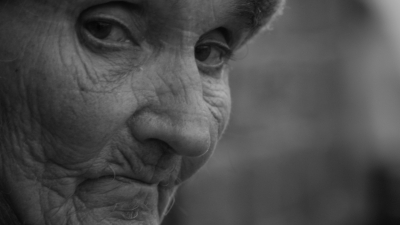


Ji.hlava IDFF

IDFF stands for International Documentary Film Festival, number 28 it is, high quality always. A quote from the email I received yesterday from the festival:
“We are thrilled to announce titles, which have been selected to the Opus Bonum and First Lights International Competitions at the 28th Ji.hlava IDFF. Fourteen films will be screened in their world premiere, six in international premiere and three will have their European premiere at Ji.hlava. Both sections present the trends and tendencies of world documentary film, with the First Lights section specifically highlighting directors’ debut and second feature films.”
And a quick look at the selection with comments from me on the titles and directors I know in beforehand.
Polish Tomasz Wolski is a master in creative treatment of archive material. I have written about his work before, in 2022 about “1970” – https://filmkommentaren.dk/tomasz-wolski-1970/ – this time, ah really looking forward to see it, here is a clip from the catalogue text “…On the 13th of December 1981, telephone connections were cut off throughout Poland. Tanks appeared in the streets of the cities. A night curfew came into force. In response to the growing influence of the Solidarity trade union movement, General Jaruzelski’s government declared a state of emergency…” The man with the dark glasses Jaruzelski…
Also I am curious to see the final result of Tudor Platon’s Romanian “An Almost Perfect Family”. I met the director and his partner and producer Carla Fotea at a workshop in Bucharest and was impressed of what I saw at a rough cut stage.
Filip Remunda, an old friend, is also on the program with a film, “Happiness to All”, he has been shooting between 2016 and 2024, the intro lines go like this: “Vitaly, a nuclear physicist and record holder in extreme cold-exposure training, makes his living as a bricklayer and lives below the poverty line…”
And – fantastic – there is a new film by the super-productive Latvian Laila Pakalnina, “Termini” (PHOTO) is the title and I copy the whole catalogue text as it is so good and because I am big fan of Pakalnina: “The final stops of buses, trams and trolleybuses in the suburbs of Riga. “Non-places” with no specific character, where nothing special happens and yet there is no stopping movement. Some people go from here to work or school, others return home. Or they work in their flower and vegetable stalls near the bus stops. Morning, evening, in snow and rain. Weekdays and holidays. Laila Pakalniņa captures their work, waiting and passing, calm and impatient, in tight moving shots. Gints Bērziņš’s black and white camera stays at one point, describing a circle that begins and ends nowhere. Ordinary stopping points, which we use without thinking about their function, become important crossroads in a wordless urban symphony, to whose unchanging rhythm the entire metropolis must submit. Exploring the poetry in everyday routine and repetition, the film completes the director’s ornamental trilogy on public transport, complemented by The Bus (2004) and Homes (2021).”
The collaboration of Pakalnina and her cameraman Gints Bērziņš is superb as you could see in “Homes” – https://filmkommentaren.dk/laila-pakalnina-homes/ – and in Spoon – https://filmkommentaren.dk/laila-pakalnina-spoon-2/
In terms of sections Jihlava FF is very rich. There is for example also a section “Testimonies” where you can find “The Sky Above Zenica” by Nanna Frank Møller and Zlatko Pranjic, a film I saw in Sarajevo in August and praised on this site – https://filmkommentaren.dk/zlatko-pranjic-nanna-frank-moeller-the-sky-above-zenica/ and contrary to most other documentary festivals you can watch experimental docs in Jihlava, from all over the world.
And a fascinating retrospective with films by Anne-Marie Miéville: They met in Paris in 1970. Godard as a successful director, she as a budding photographer. From that moment on, they lived and worked together. She is a filmmaker, editor, writer and photographer. Her multimedia work goes beyond documentary and expands the perception of fictional film.
The festival runs from October 25 until November 3.